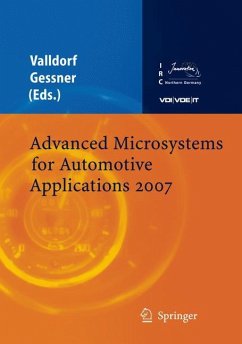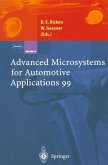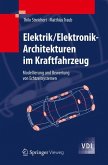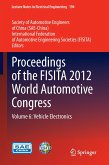From the beginnings of the International Forum on Advanced Microsystems for Automotive Application (AMAA) to the recent 11th AMAA Forum, enormous progress has been made in reducing casualties, emissions and in increasing comfort and performance. In many cases Microsystems provided key functions for this progress. This publication is a cut-out of new technological priorities in the area of microsystems-based smart devices, taking a mid-term perspective of future smart systems applications in automobiles.
Looking back when the International Forum on Advanced Microsystems for Automotive Application (AMAA) started, enormous progress has been made in reducing casualties, emissions and in increasing comfort and performance. Microsystems in many cases provided the key functions for this progress. Although the issues the event concentrated on didn't change significantly (safety, powertrain, comfort, etc.), considerable shifts of technological paradigms and approaches can be stated.
The future of microsystems will consist of integrated smart systems which are able to diagnose a situation, to describe and to qualify it. They will be able to identify and mutually address each other. They will be predictive and therefore they will be able to decide and help to decide. Smart systems will enable the automobile to interact with the environment, they will perform multiple tasks and assist a variety of activities. Smart systems will be highly reliable, often networked and energy autonomous.
There is a coincidence of the AMAA objectives and those of EPoSS, the European Technology Platform on Smart Systems Integration, contributing intensively to the development of automotive-specific smart systems. You will find a series of the EPoSS items in the programme of the 11th AMAA, which continues to be a unique exchange forum for companies in the automotive value chain.
The publication in hand also reflects these issues. It is a cut-out of new technological priorities in the area of microsystems-based smart devices and opens up a mid-term perspective of future smart systems applications in automobiles.
Additional information is available on www.amaa.de
Looking back when the International Forum on Advanced Microsystems for Automotive Application (AMAA) started, enormous progress has been made in reducing casualties, emissions and in increasing comfort and performance. Microsystems in many cases provided the key functions for this progress. Although the issues the event concentrated on didn't change significantly (safety, powertrain, comfort, etc.), considerable shifts of technological paradigms and approaches can be stated.
The future of microsystems will consist of integrated smart systems which are able to diagnose a situation, to describe and to qualify it. They will be able to identify and mutually address each other. They will be predictive and therefore they will be able to decide and help to decide. Smart systems will enable the automobile to interact with the environment, they will perform multiple tasks and assist a variety of activities. Smart systems will be highly reliable, often networked and energy autonomous.
There is a coincidence of the AMAA objectives and those of EPoSS, the European Technology Platform on Smart Systems Integration, contributing intensively to the development of automotive-specific smart systems. You will find a series of the EPoSS items in the programme of the 11th AMAA, which continues to be a unique exchange forum for companies in the automotive value chain.
The publication in hand also reflects these issues. It is a cut-out of new technological priorities in the area of microsystems-based smart devices and opens up a mid-term perspective of future smart systems applications in automobiles.
Additional information is available on www.amaa.de








